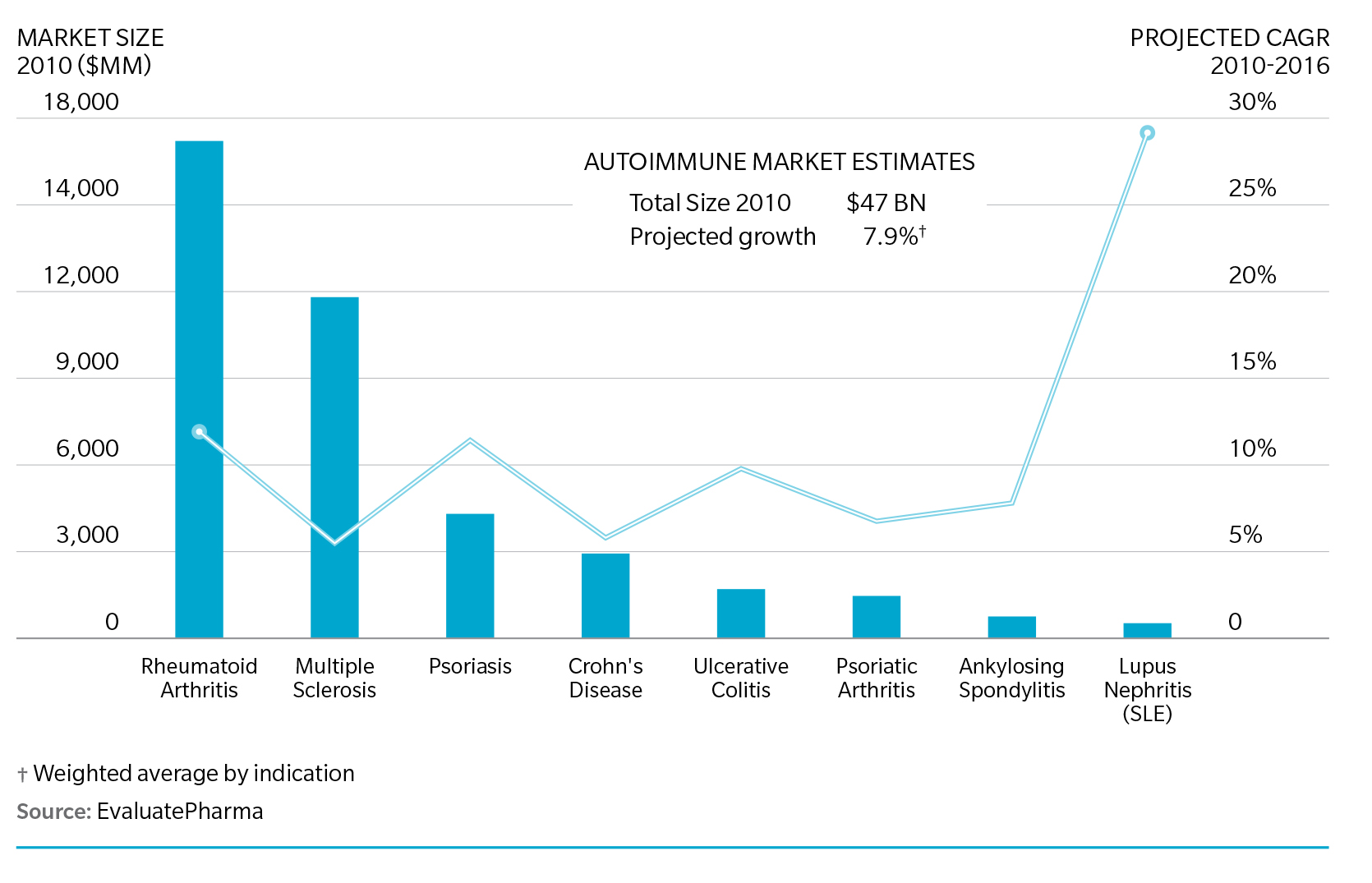Few markets are attracting as much attention from pharma as autoimmune (AI) diseases, with more than 100 products currently in development. AI offers large numbers of patients with significant unmet need and is attracting tens of billions of dollars of R&D investment.
But it is also a market with unique challenges, and players hoping to succeed in AI need to understand the unique aspects of the business model, including riskier development programs, a high-touch patient-centric commercial model, and the increasing challenge of access.
Estimated market size and projected growth for major Autoimmune indications




